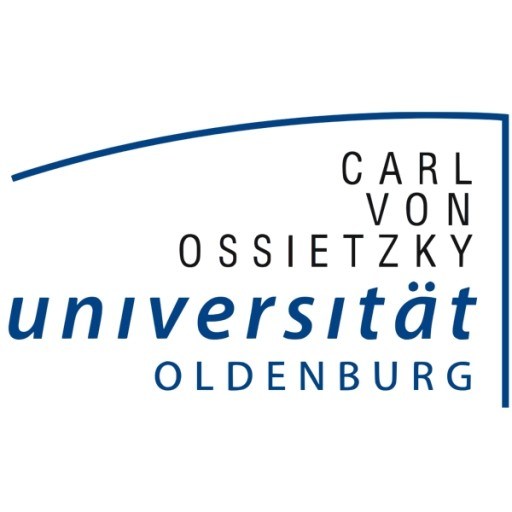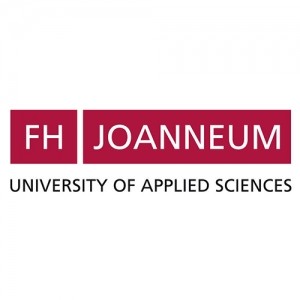Photos of university / #tallinnatehnikakorgkool
The Bachelor of Science in Renewable Energy at the University of Applied Sciences is a comprehensive undergraduate program designed to equip students with the knowledge and skills necessary to address the global challenges of sustainable energy production and environmental preservation. This programme provides a multidisciplinary approach, integrating principles of engineering, environmental science, and economics to prepare graduates for careers in the rapidly evolving renewable energy sector. Throughout the course, students engage with practical and theoretical aspects of renewable energy sources such as solar, wind, biomass, geothermal, and hydroelectric power. They learn about the technical design, implementation, and maintenance of renewable energy systems, as well as the environmental and social impacts associated with various projects. Additionally, the programme emphasizes innovation and research, encouraging students to develop new solutions for efficient energy conversion and storage. The curriculum includes modules in electrical engineering, thermodynamics, project management, and policy analysis, ensuring graduates possess a well-rounded understanding of both technical and managerial aspects of renewable energy projects. Students also benefit from hands-on training through laboratories, workshops, and internships with industry partners, which enhance their practical skills and professional readiness. Graduates of this program are prepared to work in a variety of settings, including energy companies, engineering consultancies, government agencies, and research institutions. They will be capable of contributing to the development of sustainable energy infrastructure, implementing innovative renewable energy technologies, and supporting policy development for greener energy solutions. The University of Applied Sciences is committed to fostering a learning environment that emphasizes practical skills, real-world applications, and sustainable development principles, making this program an ideal choice for students passionate about making a positive impact on the world through renewable energy innovations.
The Bachelor's Degree Programme in Renewable Energies at the University of Applied Sciences is designed to equip students with comprehensive knowledge and practical skills in the rapidly evolving field of sustainable energy. This interdisciplinary program focuses on the fundamental principles of renewable energy sources such as solar, wind, biomass, hydro, and geothermal energy, preparing graduates to develop innovative solutions for a sustainable future. Throughout the curriculum, students engage with a wide range of subjects including energy systems, environmental technology, electrical engineering, and environmental management, providing a solid foundation for understanding the technical, economic, and environmental aspects of renewable energy projects.
In addition to theoretical learning, the program emphasizes practical experience through laboratory work, project assignments, and internships in collaboration with industry partners. Students learn to analyze energy consumption, design renewable energy systems, and evaluate their feasibility and efficiency. The course also covers important topics such as energy policy, legal frameworks, and sustainability assessment, preparing graduates for roles in planning, consulting, and managing renewable energy projects.
The program fosters innovation, critical thinking, and teamwork skills, enabling students to adapt to the dynamic challenges of the renewable energy sector. It also encourages engagement with current research and technological developments to stay at the forefront of the field. Upon graduation, students will be qualified to contribute to the transition to renewable energy sources in various sectors, supporting environmental protection and energy security. The programme is suitable for individuals passionate about sustainable development and looking to build a career in one of the most important future-oriented industries worldwide.
Admission to the Bachelor’s Programme in Renewable Energies typically requires applicants to have completed secondary education with a focus on relevant subjects such as mathematics, physics, and technology. Prospective students must demonstrate proficiency in English, usually through standardized tests like IELTS or TOEFL, or equivalent language proficiency certificates accepted by the university. Additionally, applicants may need to submit a motivation letter explaining their interest in renewable energies and their career aspirations in the field. Some programs also require an interview or entrance assessment to evaluate the applicant’s motivation and suitability for the programme. Prior knowledge of basic electrical engineering, mechanics, or environmental sciences can be advantageous but is not always mandatory. The programme emphasizes practical skills alongside theoretical knowledge, so applicants should be prepared for laboratory work, workshops, and project-based learning. Interested candidates should ensure they meet the specific entry criteria set by the university for the academic year they wish to enroll in, including deadlines for application submission. The university values diversity and encourages applicants from various educational backgrounds to apply, provided they meet the foundational requirements. In some cases, relevant work experience or extracurricular activities related to renewable energies could strengthen an application. Applicants are advised to consult the university’s admission office or official website for precise admission criteria, required documentation, and application procedures. Overall, the admissions process aims to select motivated and qualified students capable of contributing to and benefiting from the interdisciplinary field of renewable energies.
The financing of the Renewable Energies degree program at the University of Applied Sciences is structured to provide accessible and sustainable funding options for students. Tuition fees are established annually and vary depending on the student's residency status, with domestic students benefiting from subsidized rates and international students contributing higher fees. The university offers a range of scholarship opportunities for students demonstrating academic excellence, financial need, or engagement in renewable energy projects and research. These scholarships are awarded based on merit and availability and can significantly reduce the financial burden of studies. Additionally, students are encouraged to apply for external funding sources, including government grants, renewable energy industry internships, and private sponsorship programs, which support practical training and research initiatives within the program. The university maintains partnerships with leading renewable energy companies, which sometimes provide sponsorship or funding for specific student projects and internships, further easing financial challenges. Payment plans are typically flexible, allowing students to divide their tuition payments into instalments over the semester or academic year. The university also facilitates eligibility for student loans through national financial aid programs, enabling students to spread the cost of their education over time. For students undertaking research or practical projects in renewable energy, there are additional grants available to cover research expenses, equipment, and fieldwork. The goal of the university’s financing strategy is to ensure that high-quality education in renewable energies remains accessible to a diverse student body while supporting innovative research and practical training essential for the renewable energy sector.
The Bachelor's degree program in Renewable Energies at the University of Applied Sciences is designed to prepare students to meet the growing demand for sustainable energy solutions. The program offers a comprehensive curriculum that covers the fundamental principles of renewable energy sources such as solar, wind, biomass, geothermal, and hydroelectric power. Students will gain theoretical knowledge as well as practical skills through laboratory work, project-based learning, and internships. The program emphasizes interdisciplinary approaches, combining engineering, environmental science, and economic aspects of renewable energy projects to ensure that graduates are well-equipped to develop, optimize, and manage sustainable energy systems. Courses include energy system analysis, energy storage technologies, grid integration, energy policy, and project management. The program aims to foster innovation and entrepreneurial thinking, encouraging students to develop new technologies and business models for renewable energy deployment. Graduates will be prepared for careers in industry, research institutions, consulting firms, and governmental agencies involved in renewable energy planning, implementation, and regulation. The program typically spans three years for a full-time student, with options for specialization in particular renewable technologies or related fields. Moreover, students benefit from collaborations with industry partners and participation in research projects, enhancing their practical experience and employment prospects. The program's approach aligns with global efforts to combat climate change and transition to sustainable energy systems, making it highly relevant in today’s energy landscape. The university also provides support services, including career counselling, to assist students in transitioning into the professional world upon graduation. With a focus on practical skills and theoretical understanding, the Renewable Energies program at the University of Applied Sciences offers a solid foundation for students committed to advancing renewable energy technologies and contributing to a sustainable future.









